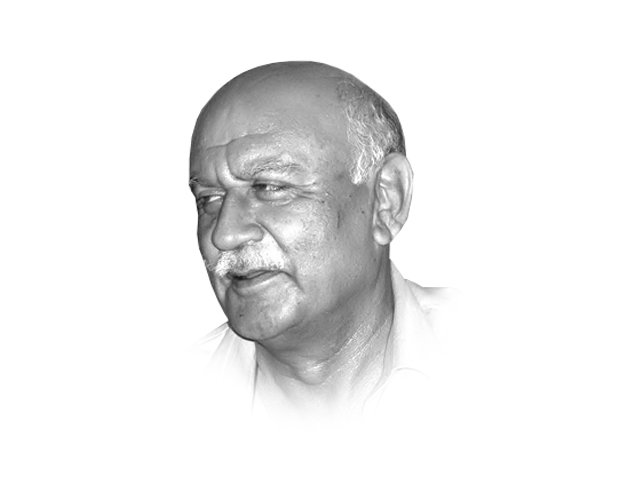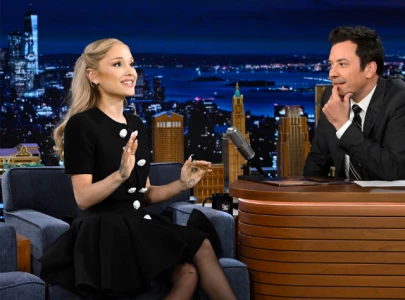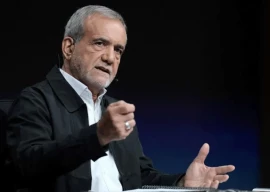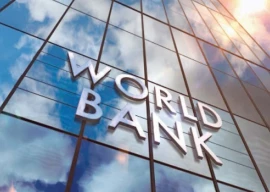
Abdul Ghani, for whom “Mulla” is a title of respect and Baradar, meaning brother, one of affection, belongs to the Popalzai sub-tribe, the sub-tribe of kings. So, too, does Hamid Karzai. Mulla Omer, the Taliban leader, belongs to the Ghilzai branch, “Kissing-cousins” to the Popalzai, but not direct descendants of Ahmed Shah. Abdul Ghani and Hamid Karzai were among the first few influential Durranis to join Mulla Omer when he swept Kandahar in 1994. While Karzai betrayed Omer by seeking succour with Ahmed Shah Masood, in 1996, Ghani remained faithful. And to those sceptics who think this background irrelevant, I suggest they visit Kandahar and talk to the Durranis who thrive on these tales.
While Mulla Omer was on the rise to fame, Ghani was one of his more trusted lieutenants and was also ascending. If Omer was the dogged determined one, Ghani was the intrepid daring one, gifted with intellect, vision and foresight. He would dare anything and devise a workable solution for any problem.
In 2001, the US troops were unaware that they had surrounded Omer in his lair, in a small hamlet outside Kabul, when Ghani ran the gauntlet to rescue Omer and got him out, clad in the traditional Afghan woman’s burqa, riding pillion behind Ghani on a motorbike. At this stage, Ghani though not very high on the Taliban hierarchy, was generally acknowledged as having a greater following among the Durranis, than Omer. This is not the only tale of his daring. If Abdul Qadir’s daring — a scion of the Zadran tribe of northern Afghanistan — during the Soviet occupation merited praise, among the Taliban, the Ghani, the Popalzai and the Durrani merited it more. This rescue was to result in Ghani’s elevation to Omer’s number two man and the leadership of the so-called “Quetta Shura”.
Ghani was not only intrepid, he was also more moderate and, as far back as 2002-03, began to mention negotiating with the US at some stage. Seven years later, in 2010, that stage began to arrive but Omer was hesitant. The intrepid Ghani was not. When Ghani was captured in 2010 by a joint Pak-US effort, the ISI took him in custody, promising the CIA that Ghani would be handed over to them the next day. To the amazement of the ISI personnel, Ghani disclosed to them that his capture was “arranged” for him to negotiate a “deal” with the CIA which was unbeknownst to Omer and to the ISI. The ISI might be the more maligned of the two, but the CIA is probably the guiltier of duplicity.
Consequently, the ISI refused to hand over Baradar to the CIA. By this act of apparent “duplicity” and betrayal of Omer on his part, Ghani lost a considerable number of his admirers and adherents, but not for long. By late 2011, it was apparent that there was to be a negotiated settlement on Afghanistan’s future, which would include Omer’s Taliban. Suddenly, Ghani’s apparent duplicity was transformed to wisdom and foresight. His intrepidity was already folklore. His daring rescue of Omer was recalled again and, by mid-2012, I am told that the Pashto song of his rescue began to be sung again.
As negotiations “began to begin”, Omer became increasingly conscious of the fact that he needed the intellect and foresight of Ghani to assist in negotiating the future. Conscious of the fact that there are still many non-Durrani Pashtuns among the Taliban, apart from splinter factions which have broken from Omer, which are still baying for Ghani’s blood, his Pakistani “keepers” are reluctant to release him.
Perhaps, his keepers are also conscious of the possibility that he might broker an “independent” deal. If so, it is with good reason. Therefore, even as Ghani has returned to his front line role in negotiations, he must do so while in “protective custody” in Pakistan. A custody, which protects him from those who want his blood and protects Pakistan (and Omer’s Taliban) from the wiles of an intrepid negotiator.
Published in The Express Tribune, June 27th, 2013.
Like Opinion & Editorial on Facebook, follow @ETOpEd on Twitter to receive all updates on all our daily pieces.
COMMENTS (12)
Comments are moderated and generally will be posted if they are on-topic and not abusive.
For more information, please see our Comments FAQ

1731637727-0/Bear--(1)1731637727-0-165x106.webp)

1731619853-0/ice-cream-(1)1731619853-0-165x106.webp)













@ Hamza Khan
After 30 years of war and 100 years of the great game, Afghanistan is poised to be on par with its immediate neighbors in ten years time and this despite not being a colony like Pakistan or India where the British built everything from A to Z.
The Afghan soccer team is ranked higher than both Pakistan and India, its cricket team is poised to qualify for the 2015 World Cup and its Olympic team won a bronze medal, while Pakistan won nothing.
Yes, Afghanistan will be the pinnacle of development and it is well on its way. Stop hating and start appreciating.
@sadhana: Afghans.... free? then what in God's name they are fighting for?
@Afghan Maihan:
yes because afghanistan is the pinnacle of human development and culture. good luck running your 4th world country.
Linchpin Afghans are a free people. It is Pakistanis seem to think they are either feudal serfs in chains or feudals with serfs in chains.
@Sadhana: India will save the Afghans and the Afghans will be ever so grateful. I see a great future ahead for Afhanistan.
Sir Well Written and nice account ongoing talks with Taliban.
"--------When Ghani was captured in 2010 by a joint Pak-US effort, the ISI took him in custody, promising the CIA that Ghani would be handed over to them the next day. To the amazement of the ISI personnel, Ghani disclosed to them that his capture was “arranged” for him to negotiate a “deal” with the CIA which was unbeknownst to Omer and to the ISI. The ISI might be the more maligned of the two, but the CIA is probably the guiltier of duplicity."
Looks like, the ordinary person in the street ,will never know what is what-----Its like a spy vs spy comic.
If tribalism controls every aspect of the undercurrent of Af-Pak politics, the situation is not likely to change overnight.
Wait and see. Things are not as simple as they seem.
Jailing Gandhi, Nehru, Patel, Azad did not change what they held out against the British for.. Pakistanis should stop talking as if they are Afghans' overlords: sounds very odd and disconnected from reality.
Extract from Chapter 1 in the book titled "Turning terrorists into folk heroes (for dummies)".
An interesting opening on the tribal dynamics, which unfortunately many seem to ignore, or sometimes opposite, overplay. More specifically Mullah Omar is part of the Hotak tribe of the Ghilzai branch.
That is certainly a slightly different take on the capture of Mullah Baradar around Karachi that I know from. Some argue it was not a joint operation (besides Pak's public denials about such operations with the US). That it was a Pakistani initiative that took the Afghan and US govts by surprise, because he was already thought to have been enjoying a certain patronage from the Pak army (as the Quetta Shura does). But Baradar was engaged in peace talks with Karzai's regime directly, and some believe the Pak security forces learned of it earlier and finally took Baradar into custody to undermine any efforts that would exclude Pak from such talks.
Regardless of what version of events unfolded, or what the details are, it is infuriating that Pakistan continues to protect Omer's Taliban.
"Therefore, even as Ghani has returned to his front line role in negotiations, he must do so while in “protective custody” in Pakistan. A custody, which protects him from those who want his blood and protects Pakistan (and Omer’s Taliban) from the wiles of an intrepid negotiator"
So Pakistan is scared of Molla Berader talking peace with his fellow Afghans because he is good negotiator. Thanks to genius like Mr. Qadir, we have TTP under Amir ul Momineen Molla Umer bombing & killing us on daily basis.
Mullah Omar is a member of the Hotak tribe, which falls under the Ghilzai/Ghilji confederation and they are not kissing cousins of the Durrani confederation.
Mullah Omar and Mullah Ghani Baradar are sideshows that are important to the Pakistani establishment only, they are irrelevant among Afghans and perceived as stooges by all Afghans.
Shaukat Qadir is trying to write some urban legends and engage in myth making. An article that utters the name of Ahmad Shah Abdali and these two minor stooges is the height of ignorance. Goes to show how little Pakistanis understand and know Afghans.